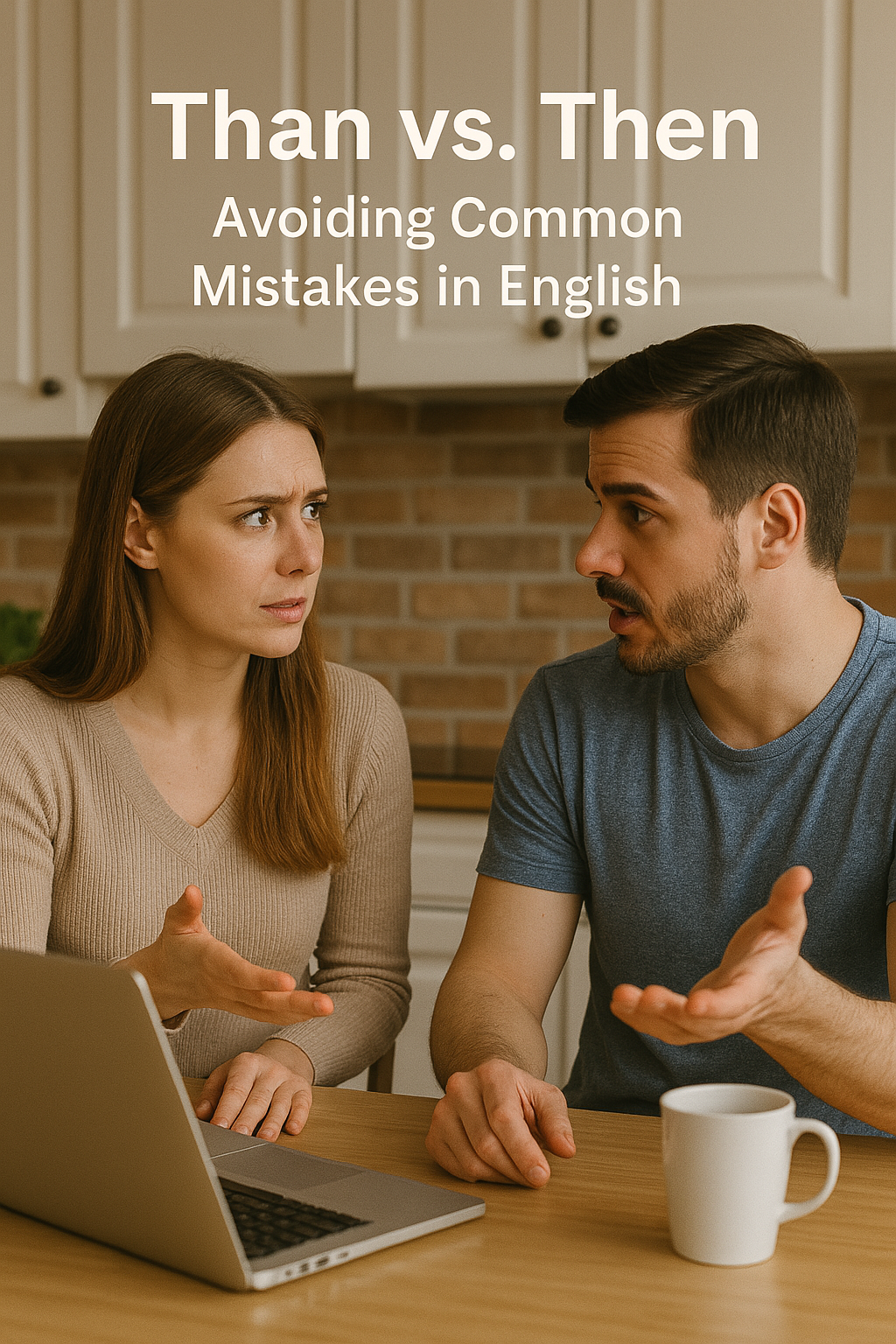Introduction
One of the most common grammatical mistakes in English is confusing than vs. then. These words look and sound similar, but their meanings are completely different. Than is used for comparisons, while then relates to time or sequence. Misusing these words can make writing unclear and lead to misunderstandings. This guide explains their correct usage with examples, quick tips, and common mistakes to help you master their differences.
The Use of “Than” in English
The word than is used when making comparisons between two or more things. It appears in sentences where one thing is being compared to another in terms of quantity, quality, extent, preference, or choice.
Than for Comparisons
One of the most frequent uses of “than” is in comparative sentences:
✅ Correct: “This book is better than that one.” ❌ Incorrect: “This book is better then that one.”
Whenever you compare two objects, people, or situations, “than” should be used.
Read More About This Article:The Past Tense of Cost – Is It Cost or Costed?
More Than & Less Than
“More than” and “less than” indicate quantity or extent:
| Phrase | Example Sentence |
|---|---|
| More than | “She earns more than $50,000 a year.” |
| Less than | “The temperature is less than 10 degrees.” |
Rather Than (Preference & Choice)
“Rather than” is used to show preference between two options:
✅ Correct: “I’d prefer tea rather than coffee.” ❌ Incorrect: “I’d prefer tea then coffee.”
It highlights a choice between two alternatives.
Other Than (Exclusions & Alternatives)
“Other than” introduces exclusions or alternatives:
✅ Correct: “No one other than Sarah knew the answer.” ❌ Incorrect: “No one then Sarah knew the answer.”
It means “except for” or “besides.”
The Use of “Then” in English
Unlike “than,” the word then is used for indicating time, sequence, cause-effect, and conditions.
Then for Time & Sequence
“Then” is used when talking about events happening in order:
✅ Correct: “We went to the mall, then we had lunch.” ❌ Incorrect: “We went to the mall, than we had lunch.”
It shows that one action follows another.
Then in Conditional Sentences (If… Then…)
In conditional sentences, “then” follows “if”:
✅ Correct: “If you study hard, then you will pass the exam.” ❌ Incorrect: “If you study hard, than you will pass the exam.”
Then for Cause & Effect Relationships
“Then” also connects cause and effect:
✅ Correct: “She apologized, then he forgave her.” ❌ Incorrect: “She apologized, than he forgave her.”
This structure is commonly used to show logical results.
Common Mistakes with Than vs. Then
Many people mix up than vs. then, but these examples clarify the difference:
| Incorrect Sentence | Correct Sentence |
|---|---|
| “She is taller then me.” | “She is taller than me.” |
| “If you leave now, than you will be early.” | “If you leave now, then you will be early.” |
| “I have more money then you.” | “I have more money than you.” |
Quick Tips to Remember the Difference
To avoid confusion, keep these tricks in mind:
✅ Mnemonic Device: “Than is for comparison, then is for time.” ✅ Substitution Test: Try replacing “then” with “at that time.” If it makes sense, then it’s correct. ✅ Practice with Sentences: Write examples to reinforce correct usage.
FAQs: Answering Common Questions
Is ‘than’ ever used for time?
No, “than” is never used for time. It only appears in comparisons.
Can ‘then’ be used for comparisons?
No, “then” refers to time, sequence, or cause-effect, not comparisons.
What’s the easiest way to avoid mistakes?
Check if you’re comparing two things (than) or discussing a sequence in time (then).
Conclusion
The difference between than vs. then is simple: than is used for comparisons, while then is used for time, sequence, and cause-effect. Knowing when to use each correctly will make your writing clearer and more professional. Practice these rules, and soon, using “than” and “then” correctly will become second nature!
Want to test your skills? Share a sentence using both “than” and “then” correctly in the comments below!
